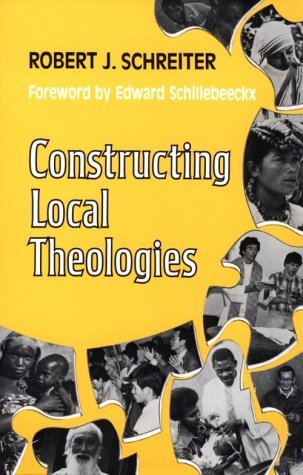Robert Schreiter, Constructing Local Theologies. Orbis Books, 2002.
Referenced in: Theology of Mission, Localized Theologies/Contextualization
LifeandLeadership.com Summary
There is a strong emphasis in missional church practice in constructing “local theologies,” often called contextualization. This text by Schreiter, alongside the less academic work by Clemens Sedmak’s Doing Local Theology, are the most frequently recommended guides in this process. As an Orbis publication, one can expect Catholic underpinnings, but the insights are easily applicable by those who do local theologies in other faith traditions.
Schreiter explains the philosophical and theoretical roots of the practice of localized theologies. The opening chapter addresses the rising need for local theologies when a faith tradition no longer has answers for new questions, but still failingly tries to impress the old answers as if they actually have relevance. He defines local theology as the “dynamic interaction between gospel, church, and culture.” (21) He then describes the various approaches being taken and who is making these approaches. Here Schreiter says there are various players in the process who must be guided by the Spirit in theologizing:
“the action and experience of the community itself; the prophet’s sensitivity to the challenge of the gospel and the poet’s sensitivity to the experience of the community; the professional theologian’s knowledge of the experience of other churches; and the unique perspectives of both insiders and outsiders.” (22)
The next chapter describes the complex back-and-forth interactions of this process with a helpful diagram. The remaining chapters expand on pieces of the process. Chapter 3 takes up “listening” (as pastoral practice) to culture. He suggests this should be the starting place because it begins with the questions and concerns of the people rather than the concerns of the church. It begins where the people are rather than where the church thinks they should be. The incarnation is the model here. Schreiter offers various tools for listening, with a preference for semiotic methods which looks at culture primarily through its dominant symbols. Chapter 4 considers how faith embeds into a culture through the various traditions. Chapter 5 looks at the specific problems that emerge when local theologies and faith traditions encounter each other. Chapter 6 argues that point that local theologies are actually expressions of popular religion as opposed to official religion as may be found in the faith statements and church orders. This popular religion is what is truly at work in people’s lives. Chapter 7 offers a discussion on syncretism, or “dual religious systems,” which are actually failed local theologies.
I do not recommend this as one’s first exposure to localized theology, especially for evangelicals who are likely to disagree with Schreiter’s approach and conclusions. Tim Tenant’s Theology in the Context of World Christianity, and Dean Flemming’s Contextualization in the New Testament is a better place for evangelicals to get acclimated to the realities of contextualization. After that, Clemens Sedmak’s Doing Local Theology is a more enticing invitation to engaging the task. Those who want to plumb the theoretical depths of localized theologies may then approach Schreiter. Only those who strongly adhere to a more missional philosophy will appreciate it. But for these persons, a perusal of the contents will reveal just how helfpul this volume will be to one’s local work.
From the Publisher
Robert Schreiter is a Catholic priest and missionary. He is past president of both the American Society of Missiology and of the Catholic Theological Society of America, where he also serves as professor. In addition to holding guest professorships at universities in Germany and the Netherlands, he has lectured in forty-eight countries around the world. He has published seventeen books in the areas of inculturation, world mission, and reconciliation. He has chapters in a further hundred books, and more than one hundred-fifty articles in academic and church journals and his publications have appeared in twenty languages.
***For additional information on this resource, including reviews, click the bookstore links. Check the reference at page top or the links below for resource guides on related topics.***
Related Ministry Resource Guides:
- Missional Perspectives 01, Introduction
- Missional Church Resources, Introduction and Index
- Missional Philosophy
- Theology of Mission
- Missional Communities
- Missional Leadership / Missional Strategies
- Missional Lifestyle, Discipleship, Spirituality
- Church Leadership and Renewal, Index to Resources
- Ecclesiology
- Evangelism
See Resources on Over 100 Areas of Ministry Leadership:


